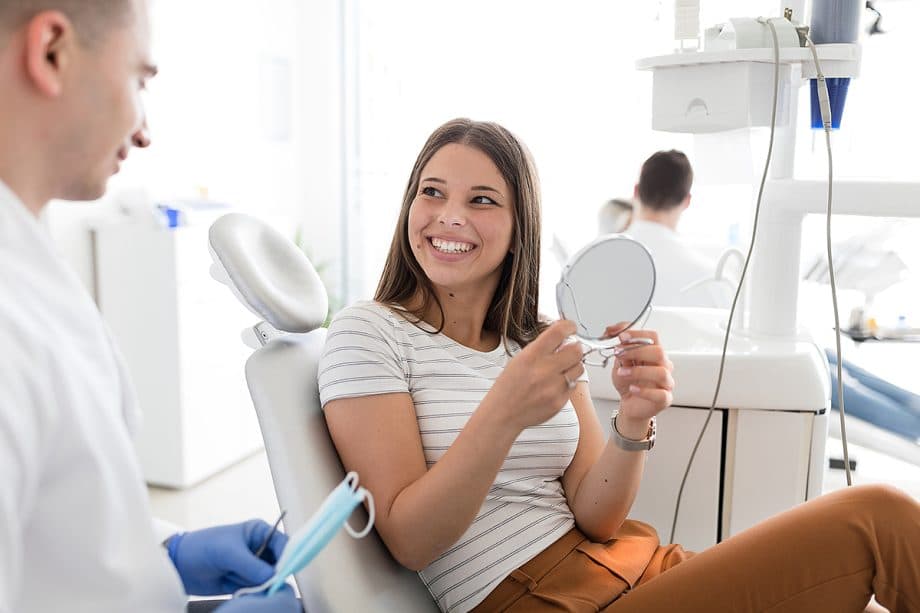If your child needs a tooth extracted, you may be concerned about what to expect. Will the procedure hurt? What should they eat afterward, and when can they return to school or play?
Childhood tooth extractions aren’t as invasive as adult procedures, and most kids tolerate them well. But it’s normal for you and your child to have questions and concerns.
Why Would My Child Need a Tooth Extraction?
You may be anxious about your child’s tooth being removed. However, if you follow the instructions given by your dentist, your child should heal quickly and won’t have any lasting problems.
Your dentist may recommend removing a tooth to:
Prevent overcrowding. Removing one or more of the baby teeth can help make space for the permanent teeth to grow in properly.
Fix an impacted tooth. Some children have impacted teeth that don’t erupt properly. Dentists may remove these teeth to avoid issues as the other teeth come in.
Treat tooth decay or injury. Dentists may remove a damaged tooth to prevent it from causing problems with their permanent teeth later.
What to Expect From Your Child’s Tooth Extraction
Nitrous oxide gas is often used to calm the child before giving a local anesthetic injection. Nitrous oxide is called “laughing gas” because it has a calming effect that often makes patients feel silly or happy.
Once your child is relaxed, the dentist will remove the tooth. Using an elevator or luxator, your dentist will gently rock the tooth back and forth to loosen it from its socket. Your child may feel some pressure, but they shouldn’t experience pain.
Once loosened, an instrument called a forceps is used to grasp and remove the tooth. Your dentist will then pack gauze into the empty socket and have your child bite down on it to stop any bleeding that might occur.
Sometimes extracting a baby tooth proves more difficult than expected and may require making an incision in the gum tissue. If this happens, stitches may be required to close the site. In most instances, however, healing takes place naturally without any stitches.
Your child may be prescribed antibiotics. The dentist will also discuss ways to manage the pain after the procedure, including cold compresses and over-the-counter medication.
Aftercare Following a Tooth Extraction
The area may be sore for two or three days after the procedure, so you can give your child over-the-counter pain relievers like ibuprofen (Advil) or acetaminophen (Tylenol) to help manage their discomfort.
Your dentist may also recommend that your child rinse their mouth with warm salt water several times a day during the first week after surgery to help prevent infection and keep the area clean during healing.
After tooth extraction, children can usually return to school or their other daily activities right away. However, the dentist may recommend avoiding strenuous exercise for at least three days following the procedure.
Can Your Child Swim After a Dental Extraction?
The American Academy of Pediatric Dentistry recommends that children avoid swimming for at least 24 hours after a tooth extraction. Children should avoid getting their faces wet until the mouth has healed completely.
The body creates a protective barrier around an extraction site by forming blood clots—part of the healing process. Water can disturb this barrier, causing bleeding and swelling. If you suspect your child has experienced bleeding or swelling after swimming, contact your dentist immediately to prevent further complications.
Learn More About Extractions and Your Child’s Dental Health
If you have questions about your child’s dental health, contact us today at 845-928-2206 to schedule a consultation.


